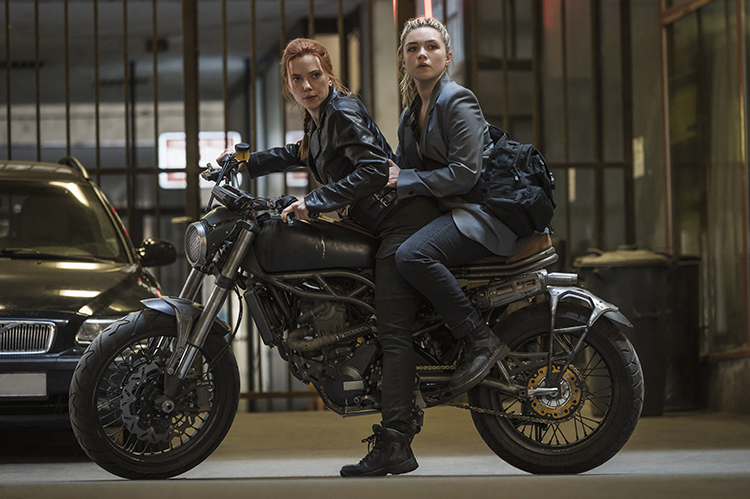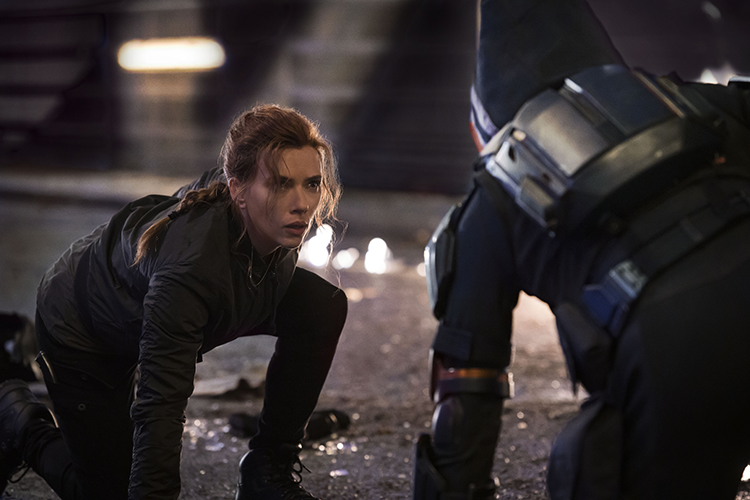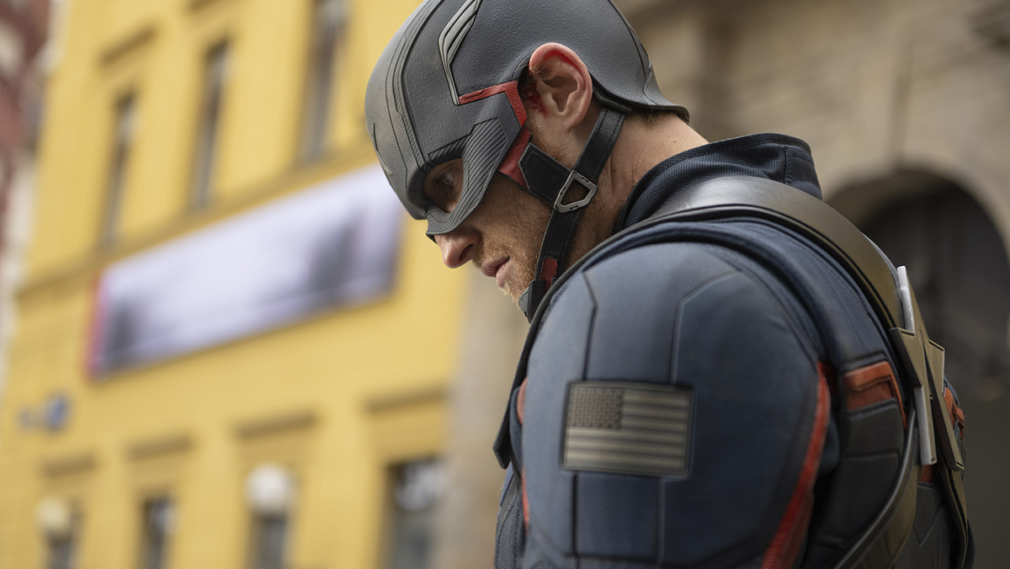It’s been a long time coming, but Scarlett Johansson finally has her time to shine as the leading lady in her own solo film, kicking off Marvel’s return to the big-screen for phase four. Debuting back in 2010 in Jon Favreau’s second Iron Man instalment, Johansson’s former assassin turned super skilled S.H.I.E.L.D agent Black Widow has definitely racked up plenty of experience points. Starring in nine MCU movies to date, which is only one less than Robert Downey Jnr.’s Iron Man and Chris Evans’ Captain America, the character has long been overdue her own outing, particularly with such a fascinating and heavily-hinted at backstory. Following the hugely emotional end to the character’s arc in Avengers: Endgame, this solo film acts as a fitting closing chapter to Johansson’s well-loved portrayal of the agent.
Directed by Cate Shortland, Black Widow centres on the events following the Avengers’ disbanding due to the fallout over the Sokovia Accords. With Natasha Romanoff alone and on the run from the authorities, the former spy’s past comes back to haunt her due to a specific package she receives from her sister Yelena (Florence Pugh). The contents link to a dangerous secret, with ties to her past and the deadly Red Room program. Natasha’s forced to team up with her old family to face her dark ‘ledger’ and a significant enemy, the architect behind it all – General Dreykov (Ray Winstone).
Set in the period between Captain America: Civil War and Avengers: Infinity War, Shortland sets out to right a wrong with Marvel’s latest big budget flick – finally humanising and delving into the psyche of Johansson’s Romanoff. The first female Avenger’s character unfortunately hasn’t always been written with huge amounts of weight or a considered tone, often hyper-sexualised (her introduction in Iron Man 2 was met with a “I want one” remark from Tony Stark) or often there as a supporting role to her male counterpart. Therefore Johansson’s portrayal of Romanoff in Black Widow feels much more of a spiritual continuation to Captain America: The Winter Soldier, complete with similar exciting thriller elements. Reframing and reclaiming Natasha’s narrative, particularly by delving into her painful upbringing with a flashback to 1995, Ohio and her old Russian sleeper-cell family, her character is granted so much more depth and development.
While Black Widow does stray into formulaic territory and Marvel-esque humour at times (with a particularly VFX heavy climax) this instalment certainly feels like a successful take on a Bourne/Bond flick, complete with impressive action sequences, a globe trotting mission and thriller elements including brainwashed agents. Hell, Natasha’s even watching Moonraker at one point! Shortland finally explores Romanoff’s heavily hinted at past and darker parts of her ledger (including what happened in Budapest) and her upbringing, as we discover more about her experiences in the tortuous Red Room and Black Widow programme, along with how she fought back against her abusers and joined S.H.I.E.L.D. While Natasha’s arc is the main focal point, her journey is nicely balanced with the introduction of Florence Pugh in the MCU, with the rising star already announced as starring in the upcoming Disney+ series Hawkeye.
Johansson once again excels in the role, bringing both humour and heart to the multifaceted performance. Her dynamic with Florence Pugh’s Yelena really does elevate the narrative, as they wonderfully capture the bickering nature of sisters with frequent spats, including a hilarious take down of Natasha’s signature landing pose. Pugh shines in her MCU debut, particularly with the humour of the role (Yelena’s affection for her multi-pocketed vest is endearingly funny) as well as the physical action sequences. There’s a definite feeling of passing the baton between the two in the film, as Johansson opens the door for Pugh’s continuation in the wider MCU. Coupled with support from David Harbour’s oafish but hugely likeable performance as Alexei/the Red Guardian (the Soviet Union’s answer to Captain America) and amusing smarts from Rachel Weisz’s Melina, the dysfunctional ‘family’ unit really is the heart of the film.
However, there’s a distinct lacking in the villain department, with the mastermind behind the tech controlling an army of brainwashed women none other than…Ray Winstone with a laughable Russian accent. Coupled with a surprising adaptation of comic book villain Taskmaster, which could certainly disappoint fans (but makes sense in the context of this narrative), these questionable choices do at times detract from the brilliance of the rest of the film. The Handmaid’s Tale star O-T Fagbenle is also woefully underused as Romanoff’s fixer.
With a number of spectacular Bond-esque action set pieces and fantastically choreographed Bourne inspired fight sequences, Black Widow definitely excels as a more grounded and intimate Marvel spy thriller, packing plenty of punches. An early fight scene between Natasha and Yelena in the Budapest safe house definitely evokes the latter, as the two use anything (including curtains, sinks and tea towels) as potential murder weapons, crashing through the apartment and not holding back in their brawl. There’s also plenty of high-octane car (and motorbike) chases, a prison breakout sequence (coupled with a bonkers avalanche) and a number of globe-trotting locations. The Russian folk inspired score from composer Lorne Balfe (who’s previously assisted Hans Zimmer on The Dark Knight) also excels, adding to the big, cinematic scale, while finally giving Romanoff her own motif and musical identity. Malia J’s cover of “Smells Like Teen Spirit” also adds a real haunting quality to the excellent open title sequence.
Verdict
Although it’s been far too long in the making, Scarlett Johansson finally has her time to shine in the solo action-packed spy thriller Black Widow. With brilliant character dynamics, a fantastic introduction to Florence Pugh’s Yelena and some impressively gritty combat sequences, Cate Shortland has finally done the character justice – leaving an impactful legacy for a survivor who fought for freedom for oppressed women just like her.





